Consider this: While personal productivity tends to be low, room for productivity improvement in the average employee is high; on a scale of 1-10 the average score is 4.8.
In these circumstances, use of David Allen’s Getting Things Done (GTD) methodology shows a minimum of 20% improvement in personal productivity and effectiveness. This was shown in a recent Productivity Scan research study conducted by Life Architect and set up in collaboration with the David Allen Company.
Personal Productivity
Productivity consists of four core elements: effectiveness, focus, control and balance. Overall productivity being the sum of these four components. Productivity is about the desire to achieve certain goals and how effectively they are attained. Control in your own work sphere is therefore instrumental in stress control.
The Life Architect Productivity Scan shows a significant difference between the personal productivity of people living in the Netherlands (5.5) compared with other countries (3.9). The scan also shows that implementation of David Allen’s “Getting Things Done” or “GTD” strategy improves personal productivity by 20%. The Dutch who use GTD, scored an average of 6.1 (still room to improve here too, but an average point higher than other people).
Personal Productivity: Effectiveness (4.7)
Productivity Effectiveness is measured with statements like: “I keep working harder but the loose ends keep piling up” and “I achieve all my goals”. The highest score of 5.3 was given to “I always find everything I need when I need it”. The biggest differences between the statements were found in this section. For example, the Dutch score 6.5 on the previous statement, yet only manage a 4 in response to the statement “work is always on my mind in the evening”. Dutch non-GTD users scored an average 4.5 compared to 5.7 for GTD users.
Personal Productivity: Focus (5)
The Productivity Scan showed that many respondents do not know what they want to achieve or how they want to achieve it. The average score for productivity focus is a 4.8. Several respondents indicated that they have conflicting interests scoring a 5.
The question “My goals are in line with my work / daily activities” was given a 6.6 by Dutch people compared to 3.1 outside The Netherlands. This is a relatively low score especially given the fact that half the total participants in the scan are in a senior or managerial position.
Personal Productivity: Control (5)
There is much talk about the overloaded e-mail inbox, but our research, whilst indicating this a problem area, revealed a score of 5.3, e-mail is certainly not the biggest problem.
The lowest score of 4.8 was given to the statement “I want to clear my head”. Noticeably the Dutch scored a 3.6 compared to a 6.5 for people outside The Netherlands. Apparently the Dutch have a greater need for a “clear head”. Another noteworthy difference is that the Dutch see an empty workspace as an incentive (8.1) compared to a 2.7 for other people. Dutch GTD users score an 8.8.
Personal Productivity: Balance (4.8)
“I feel that I spend my time on the right things” scored low with an average of 4.6 and the statement “I have time left for the things that are important to me” scored a lower 4 5. However considerable differences are found between GTD users and non-users.
GTD users scored a 5.3 on the statement ” I feel relaxed and in control” while non-GTD’ers scored a 4.1. There also appears to be a link with the question “I know what my passion is” which scored an average of 5.2. The Dutch showed a higher 6.9.
Conclusion
The unexpectedly low scores on this personal Productivity Scan also indicate that the respondents have completed the questions honestly. Many people do things without thinking of the desired outcome, the objectives to be achieved, or the impact and importance of their work. People may think about it but do not take the steps to effectively set priorities or next actions.
Especially in the light of current events and the world economic crisis, the importance of productivity in organizations is also dependent on the same factors described in this Productivity Scan. David Allen author and originator of GTD,says that now more than ever is the time to “get in control of what we can, with the right people at the right time”.
GTD changes the way we work in terms of personal and organizational productivity and effectiveness. This Scan shows that GTD helps to maintain control and perspective at home and at work, quickly delivering a 20% increase in personal productivity.
Public GTD seminar in Amsterdam: 19th February 2009
Would you like to be learn more about GTD (Getting Things Done) with David Allen and meet the man in person? He will be in Amsterdam on 19th February 2009 to give the GTD seminar “Making it All Work”. Registration on GTD seminar Amsterdam or http://www.davidcom.com/.
Would you like to know more about the current status of personal and organizational productivity in your organization, please contact Elise de Bres of Life Architect for the Life Architect Productivity Scan.
New translation of David Allen’s “Making It All Work”
David Allen’s latest book “Making it All Work” is now available in both English and Dutch (same title, from February 23rd)
About the respondents
754 people completed life Architect’s Productivity Scan. Of the respondents, half indicated that they had a management or leadership role in their organization, and 28% were female half of which used GTD. Respondents were Dutch (436 people) or other Nationals (308 of which slightly less than a third from Belgium and the rest from countries including USA, Australia, Chile, Brazil, South Africa, Finland, Germany, Austria, UK etc).
Personal Productivity Scan
The Personal Productivity Scan has been prepared on the basis of 23 statements in the form of a questionnaire. Five points of individual productivity and three additional points were measured.
The statements could be answered on the basis of a sliding scale (strongly agree; agree; neutral; disagree; strongly disagree). Where a positively formulated statement was filled in a response was given the following values: +2, +1, 0, -1, -2. This was reversed where statements where negatively stated.
All scores were added together and divided by the number of respondents. Thus the average was determined. Final scores were divided by 4 and rounded to 2 decimal places. For a full report on findings, please contact us via the web site. Use or publication of these findings is permitted with full reference to Life Architect.
Everyone has a purpose in his life. A successful business or career, a loving and happy family life, time for the important things and events, space for creativity and less stress. In order to achieve all that you want to, you need a plan, or blueprint. Life Architect helps you achieve more with less stress, helps you to improve your life—helps you to make, identify and interpret your life’s plan.


I am an intense GTD enthusiast, convinced of GTD’s utility in boosting productivity, whose day job is as a professor of mathematics.
This inquiry did not measure productivity but the respondent’s =perception= of their own productivity.
The conclusion that GTD delivers “a 20% increase in personal productivity” may very well be the case but is an unwarranted inference from these data.
Many studies are done on a perception basis as its hard to determine actual productivity – you could get one insight from being mentally clearer and more focused that could result in being 50 times more productive!
Also, if the perception is increased 20% that would have an impact on their state of mind which effect the results!